GOODFINDING ebook Now On Sale for $.99!
Good Children Anger Management
Comes When They Gain This Self-awareness & Skill
Authored by William G. DeFoore, Ph.D.

You are here because you want to help with children anger management for children with unexplained anger. The first step is to figure out why children get angry in the first place!
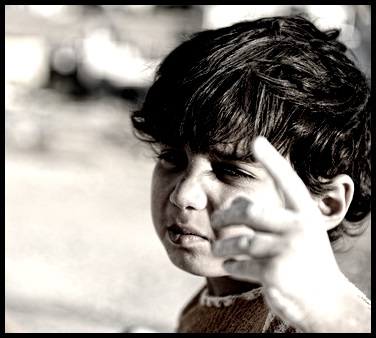
Keep in mind, regardless of how it looks to you, there is always a good reason for your child's anger. They are not "bad" for feeling what they feel.
At some level, all emotions make sense, and our job is to understand why your child is angry. Once we understand the cause (the "why"), we're ready to bring on the solutions.
One thing is for sure, and that is that you are the right person to help--you're here because you care!

What You Need To Know Now
- When children get too angry on a consistent basis, it can lead to serious problems such as an anger disorder, bullying, or in the worst cases, school violence. At the very least, an out of control angry child can become a tyrant that dominates your home.
- Anger is a natural, healthy emotion and there's something wrong if a child doesn't get angry at some point
- Anger never "goes away," it just gets suppressed--which can cause violent outbursts, depression, anger and stress management-related illness
- There is a big difference between feeling anger and showing anger. Your concern with children anger management is not to keep the child from feeling the anger, you just want her/him to show anger in healthy ways.
So! Our question is not so much "why children get angry" as it is, "Why do we have problems with anger management in children?"
Let's take a look at some of the reasons that we're seeing children anger management problems.
By the way, I've been counseling with children and families for over 40 years, so this information on anger management for children comes straight from a lot of personal and professional experience.
Why We Have Children Anger Management Problems
Neglect of basic needs
A common cause of problems with children anger management is unmet emotional, physical and intellectual needs. Since many people don't know what the basic emotional needs of a child are, we'll start with a list of those:
- They need touch. Every child needs you to hold them, nurture them, play with them, coddle and rock them. This is necessary for the child's development of self-esteem, physical balance, emotional security and comfort in her/his body. When children are deprived of touch, they can have many different types of problems, including major health problems. In extreme cases, children deprived of human touch have been known to die. Problems with children anger management can develop when the only way a child gets physical touch is by throwing a temper tantrum--to get "negative attention"--which to the child is better than no attention at all.
- Children need eye contact. The development of identity in a child depends on "tracking," which involves eye contact with the mother. Eye contact provides a sense of "I belong here," and "I am welcome here" for the child. I cannot overstate the value of this.
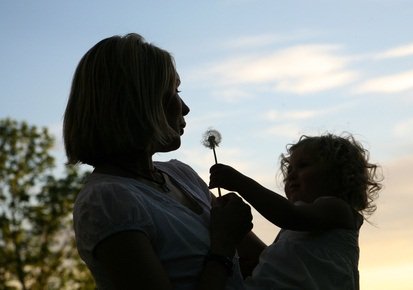
- Children need smiles. This is so very important for successful anger management for children! A smile tells your child that you love them, and everything is okay. Frowns, worried looks and especially angry looks can send an alert to your child's emotional brain that activates a fight or flight reflex--which could signal the beginning of a children anger management problem for children who experience this.
- Children need acknowledgment. Problems with anger management in children sometimes result from children not being acknowledged for who and how they are as unique individuals. Here are some ways to acknowledge a child:
- Give regular eye contact and smiles.
- Get in the habit of giving lots of simple greetings: every time you see the child, even if you've only been in another room for a few minutes, say "Hi!" and call them by their name frequently in a friendly way. Hugs and kisses when you've been apart for a while are also very important.
- Say these kinds of things to the child often: "I love you," "I'm so glad you're here," and "I'm so glad you were born!"
- Another wonderful way to acknowledge a child and prevent children anger management problems is to pay attention to what they like to do and what they show an interest in--and then support them in that interest! Every child has a unique and beautiful gift to offer to the world, and your job as caregiver is to help them develop that gift. Anger management in children who have a strong sense of their purpose and passion in life is a healthy, natural process.
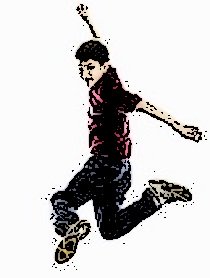
- They need to play. Play is the language of a child. Children develop and communicate their feelings through play. Although a child will play on their own, it is also important that you play with them as a way of creating a bond and letting them know that you value them as an individual. Letting the child guide this type of play is most effective--in other words, you go into their world and let them decide how to play. Healthy children anger management techniques involve various forms of playful activities.
- Children need communication with you! You need to talk to your child! Breakdown in communication between parents and children can be one of the factors leading to incidents of school violence. Your children need to hear your friendly, encouraging, helpful voice frequently and regularly to develop healthy children anger management skills. Teach them:
- A positive attitude about themselves and the world around them.
- About healthy sexuality.
- Social skills. Every child needs to know basic social skills, including empathy for other people. Emotional Intelligence research has shown that bullies stop bullying when they learn empathy!
- Spiritual values. Every child needs some opportunity to develop their own spirituality and spiritual values.
Anger management in children is extremely difficult or impossible when these basic needs are unmet or only partially met. You may want to learn some additional parenting skills to help you in this area.
Unhealthy role modeling
As parents, we tend to make two kinds of mistakes when it comes to role modeling anger management for children.
Showing too much anger
- Anger outbursts, yelling, screaming, throwing things or hitting in anger. This is damaging to children whether the anger is between husband and wife or directed at the child.
- Constant negativity and bitterness about life and the world in general. Problems with children anger management can show up even if nobody is really overtly angry around them.
- Direct physical abuse by family members.
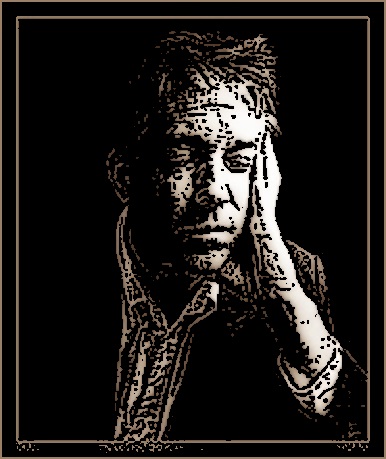
Not showing enough anger
- Some parents don't show any anger at all. But since we know that everyone has anger, that means it's suppressed, or buried inside. Kids like to dig up what's buried, and that includes buried anger! Here's how this goes. It's like the child says (unconsciously), "Mom and Dad aren't showing anger, so I'll take that job on for myself!" In these situations, the child is a sort of "pressure-release valve" for the buried anger in the family.
- Some parents have a lot of anger inside, but just "leak a little anger out" all of the time in the form of sarcasm, criticism, cynicism, irritation, grumpiness and bitterness. Once again, the child is the release valve, and believe me it doesn't do anybody any good! What you are learning here is healthy anger management, for children to learn the skills they need from you as their parent or caregiver.
ADD, ADHD & ODD
Has your child been diagnosed with Attention Deficit Disorder (ADD), Attention Deficit Hyperactivity Disorder (ADHD) or Oppositional Defiance Disorder (ODD)? If so, children anger management issues can often arise in association with these problems.
Learn more about ADD treatment and Oppositional Defiance Disorder.
Physical abuse
One thing that will create children anger management problems is when anger is hammered into them by an adult. Physical abuse is damaging to the body, mind and spirit of a child. If you aren't sure what physical abuse is (it might surprise you to know how many people really aren't sure about this) check out this article in Wikipedia.
Here's a quote from the article: "Physical abuse is abuse involving physical contact intended to cause pain, injury or other physical suffering or harm."
There is absolutely no justification for physical abuse of a child. Some parents or caregivers may explain their behavior by pointing to the child, but children do not cause adults to lose control and become violent. Remember, we are focusing here on healthy, successful anger management for children who just need love and guidance to be wonderful kids!
Anger is a totally natural response in a child who has been harmed by physical abuse. If the child has no help with their anger, however, children anger management problems will inevitably occur.These children definitely need child anger management counseling and/or family counseling.
Teaching healthy anger management in children may require that you do some studying and learning beyond what you're getting here.
Sexual abuse
Even though we have all heard about sexual abuse and most of us think we know what it means, you'd be surprised at how many people are confused about what is and isn't sexual abuse.
When a child's sexual boundaries are violated, there is always some anger that results. But when the abuse occurs, the child is small and helpless, so usually their anger doesn't come out very much if at all at first.
However, children who are sexually abused quite often develop anger management problems sooner or later. Keep in mind, however, that this does not apply to all children anger management situations. Many sexual abuse victims become quiet, passive and submissive, burying their anger so deep that it may not come out until they are adults.
Family counseling is sometimes very helpful for children anger management problems when children have been sexually violated. This is usually most successful in conjunction with play therapy.

Wow! You read all the way to this point! I want to encourage you in your amazing efforts to help the child or children in your care. You are indeed one of the champions, one of the heroes who is obviously devoted to saving and helping the children of our world.
Children anger management problems require us all working together, and you have shown that you are one of the ones who is willing to do your part! Believe in yourself, learn the parenting skills you need, and believe in the precious children in your life.
Have A Story Or Question About
Child Anger?
Do you have a great story or question about this? Share it! We'd love to hear from you, and your submission will be published as a web page, if selected.
Feel free to also review our FAQ page (frequently asked questions), to see if your question has already been answered.
Please check the blue question mark below for instructions--it's easy!
What Other Visitors Have Said
Click below to see contributions from other visitors to this page...
Why Do You Have To Be So Mean? 




The title of this article is our theme song in our household. My daughter who is 8 yo lost her dad around 2 years ago.
At first she thought her dad …
How Do I Deal With My 12 Year Old Lovely Beautiful Talented Angry Son? Not rated yet
I have a wonderful son who is 12 years old, a middle child, with a younger brother and older sister, and he has recently acquired two younger step brothers. …
Help! Out Of My Mind Not rated yet
I came to this website and learned a lot of helpful hints and information to help me with my 7 year old.
This morning she grabbed her sister's hand …
- Home
- Child Anger
- Children Anger Management
We receive commissions on Amazon sales on this website.
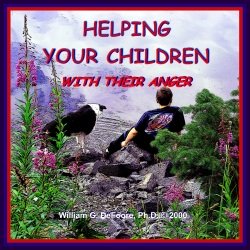


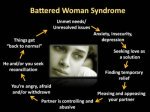


New! Comments
Have your say about what you just read! Leave me a comment in the box below.